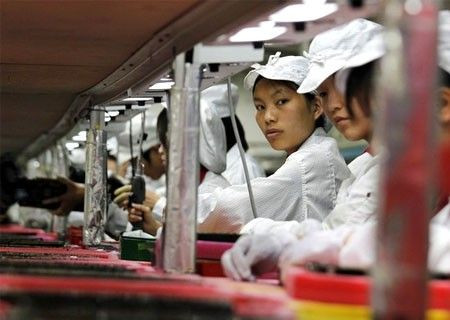30 Chinese provinces raised minimum wage as inflation soars : GT

Thirty provinces in China had raised their minimum wages by the end of 2010, according to a spokesman for the Ministry of Human Resources and Social Security, reported Global Times.
In 2011, more minimum wage hikes are expected as inflation builds.
Tianjin is considering raising the minimum wage by 16 percent. Jiangsu, Guangdong, the municipality of Beijing, and the municipality of Chongqing also indicated they will raise minimum wages.
For Guangdong, they are considering increasing it by as much as 18.6 percent.
Global Times said the debate among Chinese officials is this: improving the purchasing power of the poor or keep wage costs down for businesses.
Inflation, particularly for food items, surged last year. In December 2010, the overall consumer inflation was at 4.6 percent year-on-year and food inflation was at 9.6 percent. For November, it was 5.1 percent for overall inflation and 11.7 percent for food inflation.
Because food inflation affects poor people the most (China has hundreds of millions of them), the government is concerned about this problem in the context of massive social unrest.
Even before food inflation made headlines, workers from Foxconn's Guangdong factory were able to negotiate significantly higher wages after holding strikes. Workers at Chinese Honda factories were also able to extract similar concessions.
This suggests that laborers' discontent with low wages have been brewing for years.
But as poor Chinese workers push for higher wages, some companies may not be able to afford paying them.
First, they, too, are suffering from surging raw material prices. Second, China's massive manufacturing sector is squeezed by unemployment in Western countries and the appreciation of the yuan. The construction industry also faces pressures from the government's clampdown on the real estate market.
Third, some noted economists/investors claim many of the country's businesses have razor-thin margins or are already unprofitable.
Pressured on both sides, Chinese policy makers may be forced to make very tough choices in 2011.
© Copyright IBTimes 2024. All rights reserved.





















